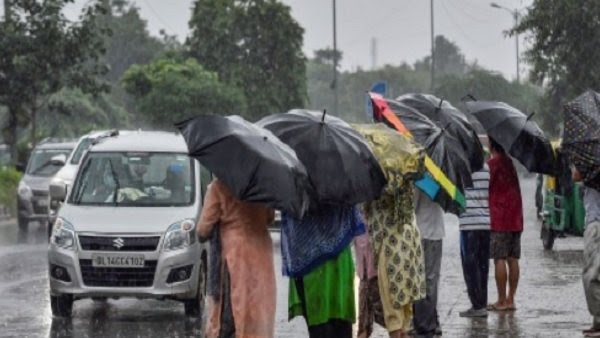According to the India Meteorological Department (IMD), Delhi recorded a total of 88.2 mm of rainfall in January this year, which is the highest rainfall in the month since 1950. Earlier, IMD had told that till 9 pm on Saturday, there was a total of 70 mm of rain in the month of January, which is the highest rainfall in 32 years. Now after adding the figure of late Saturday night, it has become 88.2 mm.
An IMD official said, “This is the highest rainfall in the month of January during the period 1950-2022. Delhi received 63 mm of rain till January 10 due to the influence of two western disturbances one after the other. The minimum temperature in Delhi on Sunday was recorded at 10.5 degrees Celsius, three notches above normal.
Earlier, the capital had received 79.7 mm of rain in 1989 and 73.7 mm in 1953, according to IMD data. Due to rain, the national capital on Saturday recorded a maximum temperature of 14.7 degrees Celsius, which was seven notches below normal for this season. The maximum temperature has been below normal since the second week of January. The minimum temperature remained above normal and near normal.
Also Read – Covid-19: Vice President Venkaiah Naidu tested Corona positive
M Palawat, vice-president (meteorology and climate change), ‘Skymet Weather’, said that between January 9 and January 19, mainly due to cloudy weather and rain, there was no sunshine for a long time. He said that the rains between January 7 and January 9 increased the humidity in the air, which led to foggy conditions amid low temperatures. Due to fog and low clouds, cold conditions prevailed over large parts of the national capital and adjoining areas till January 16. From January 16, the day temperature again fell due to the influence of one western disturbance after another.
Palawat said that in January this year, the effect of Western Disturbance was observed six times in Delhi, while the effect of Western Disturbance is normal three to four times in a month. He said, “Delhi witnessed the effect of Western Disturbance three times between January 1 and January 9. Since January 16, three more Western Disturbances have affected the national capital. Its recent impact was seen on January 21.”
Due to cloudy sky and rain, the rays of the sun are not able to reach the earth, due to which the temperature of the day decreases. Clouds absorb the heat during the day, keeping the night temperature above normal.


